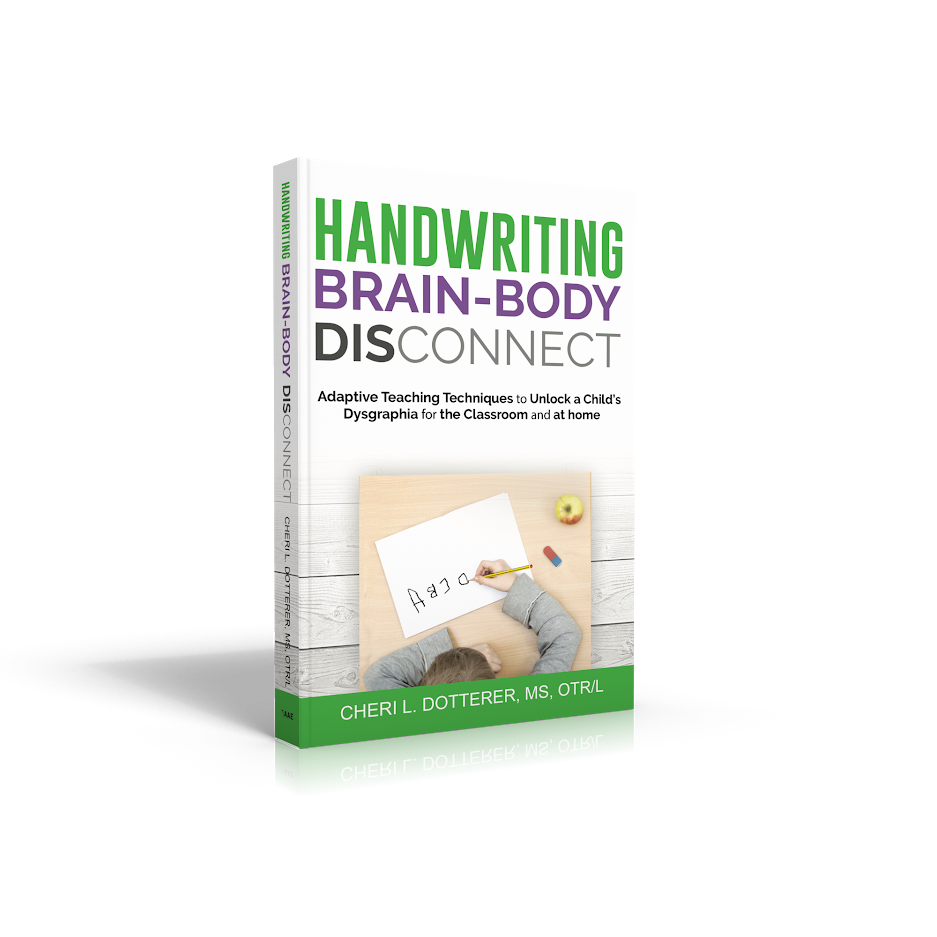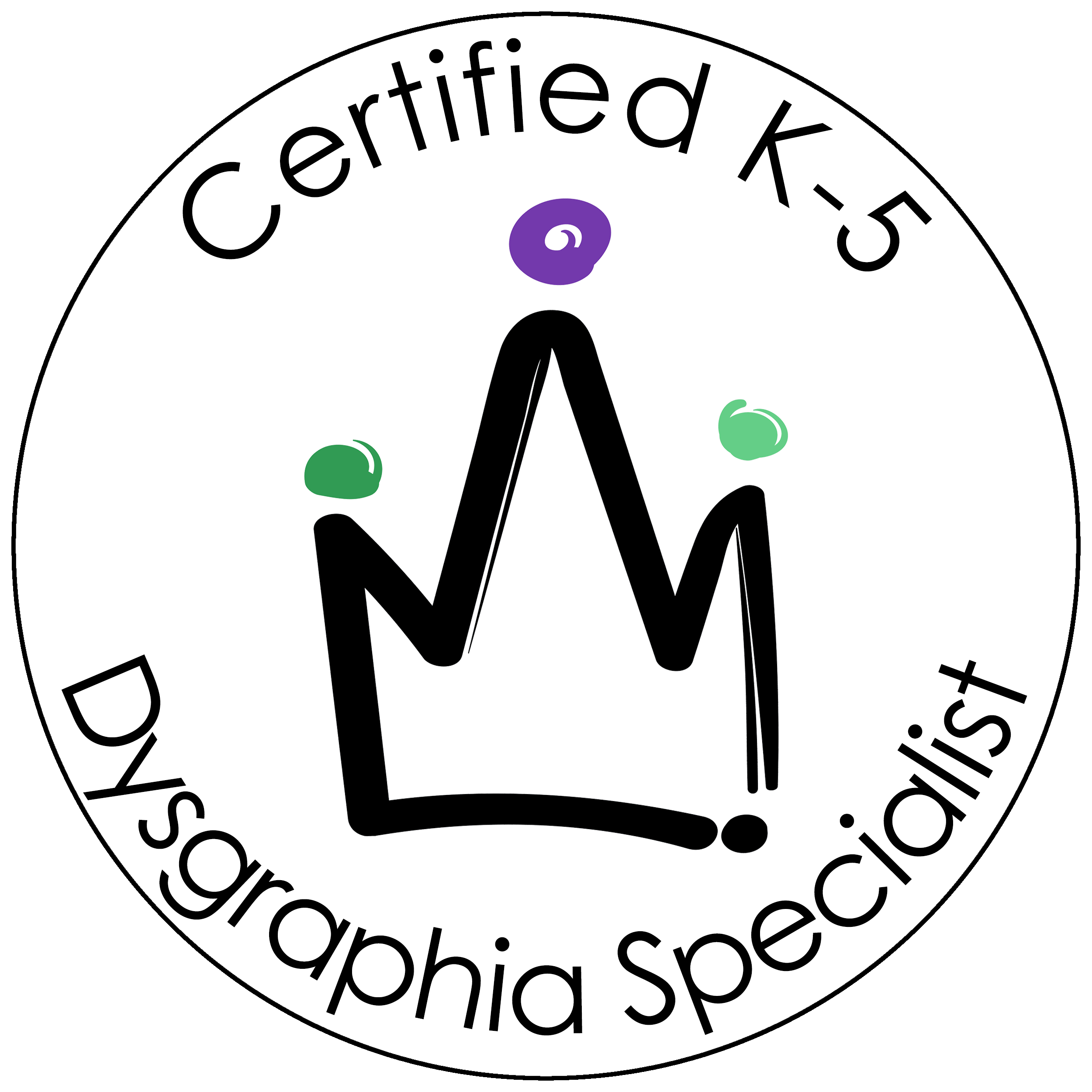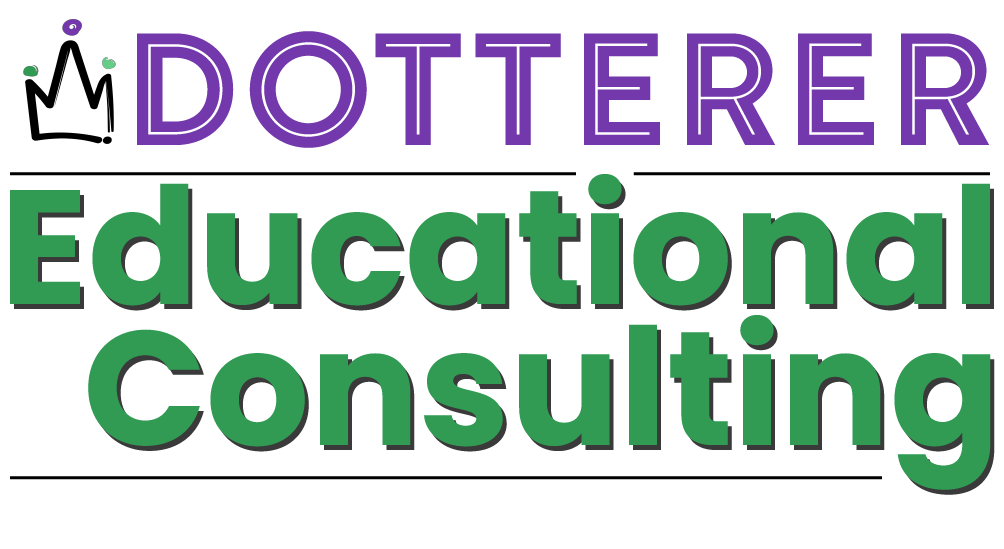Digital Media Kit
Interested in interviewing Cheri?
Cheri is open to guest podcasting, corporate and educational institutions keynotes and workshops, and media entities interviews.
1. What is Dysgraphia?
Dysgraphia is a disability in written expression. It is estimated that 33% of the population have some level of dysgraphia.
2. How did you get interested in dysgraphia?
I had a parent ask me, “How can my child read and not be able to write?” I couldn’t answer. In my search to find the answer, I discovered that there are many misconceptions about dysgraphia and not much published for educators, therapists, and parents.
Also, I could not understand why my gifted daughter struggled with spellnig and I could not find any spelling suport programs. Today, there are more piblished Structured Literacy programs that include spelling.
3. I've heard of dyslexia. Are dyslexia and dysgraphia the same thing?
Dyslexia, dysgraphia, and dyscalculia are Specific Learning Disabilities.
Dys=disability
ia=a condition
Each one of the roots delineates the three from the other.
lexi=reading
graph=writing
calc=math
They are in the same category in the DSM-5 but are not the same.
**DSM-5 = Diagnostic and Statistical Manual of Mental Health Disorders, fifth edition – The Bible of mental health conditions.
4. Are there any other disabilities that are similar to dysgraphia?
Many individuals who have dysgraphia also have comorbid conditions such as Attention Deficit Hyperactivity Disorder (ADHD) or Autism Spectrum Disorders (ASD). They are not the same diagnosis though.
5. Are there types of dysgraphia?
My definition of the types of dysgraphia is slightly different from other organizations because my delineation is a sensory-motor approach to interventions. They are the Interventions Types of Dysgraphia.
- Visual-Spatial Dysgraphia
- Motor Dysgraphia
- Memory Dysgraphia
- Word Formation (Spelling) Dysgraphia
- Sentence Formation Dysgraphia
- Paragraph Formation Dysgraphia
6. Can you evaluate my child/student who may have dysgraphia?
I am a retired occupational therapist. I no longer provide treatments.
However, I continue to consult on IEP documents and provide professional learning in schools and online.
I also support homeschooling families through educational programs and coaching.
I am an ACT48 Approved Provider in the Commonwealth of PA. This approval allows me to use NBCOT to provide professional development to occupational therapists in any other states.
7. What are the symptoms of dysgraphia?
| Avoiding handwriting | Hand cramps/pain | Unorganized paragraphs |
| Awkward pencil grasp | Intensively watching one’s hands | Unusual pencil position |
| Awkward letter appearance | Pencil pressure is too dark/light | Written Expression does not meet expectations |
| Difficulty managing margins | Poor fine motor skills |
8. How do I find you on social media?
9. Do you have any free resources?
10. Where have you been featured in the past?
- 2022 Mental Health Awards – Dysgraphia Expert of the Year – Global Health and Pharma Magazine
- 2022 Social Care Award – Best Handwriting Support Program in PA – Global Health and Pharma Magazine
- Building Readers for Life Conference
- Dystinct Magazine
- US News and World Report – How kids can get dysgraphia help in school?
- US News and World Report – What is dysgraphia?
- WFMZ Channel 69 Life Lessons
- Parenting Special Needs Magazine
- Virtual Education Summit
- Podcast appearances
11. I understand that you host two podcasts.
12. I understand you have a subscription box.
Yes. We offer Relief in 3d for teachers, therapists, and parents.
Out subscription box is called Relief in 3d.
3d (always with a lowercase d) provides intervention techniques and strategies monthly for students with dyslexia, dysgraphia, and dyscalculia.
We also include Relief for the buyer by adding much-needed relaxation, fun stuff, or personal supplies for school and home.
Each month’s box has new interventions and new relief resources.
You can purchase the box at store.disabilitylabs.com
Also, we offer a special holiday box that goes on sale in October and is shipped in November. That way, teachers can use the box as their Secret Santa gift.
The Holiday Box is unique because it is a buy-one, gift-one offer. That way, teachers can keep the supplies for themselves and share the other box.
13. How do you support students who struggle in math?
We have partnered with Minds On Math, LLC. We provide neuroscience and sensory processing support for 12 unique math tasks that can be completed from pre-K through college.
Our partnership has improved students’ conceptual math knowledge by educating their teachers.
Our philosophy is that math achievement is improved through number sense, which is understanding the magnitude of numbers.
We discuss the philosophies and math interventions on the Tier 1 Interventions podcast.
Headshot

Battling writing challenges firsthand, Cheri has emerged as a global authority, pioneering innovative, neuroscience-backed strategies to overcome dysgraphia seamlessly within the classroom setting. Author of “Handwriting Brain-Body DisConnect” and contributor to seminal works, she’s set to release “Math DYS-connected,” co-authored with Jonily Zupancic. She owns Dotterer Educational Consulting and The Writing Glitch Podcast. Living with her husband and son, Cheri’s experiences fuel her passion to revolutionize learning. They also have a daughter in grad school.
Mission Statement
We are committed to IMPACT the journey of 200K teachers (3M students) by 2030 so they can reignite their passion for teaching.
Vision
Dotterer Educational Consulting provides professional development to improve writing skills through efficient lesson planning for regular education classrooms.
We have partnered with Minds on Math to provide efficient math lesson planning.
Additional images




